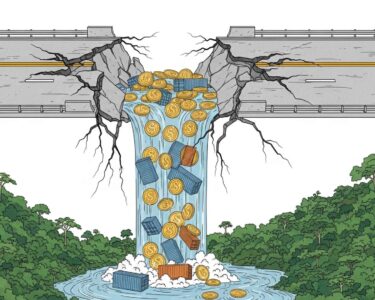Limón, Costa Rica — LIMÓN, Costa Rica – A landmark legislative proposal aimed at catalyzing economic growth in the Caribbean province of Limón has cleared a crucial hurdle, advancing to the floor of the Legislative Assembly for full debate and a potential final vote. The bill, which seeks to create the Limón Commercial Free Trade Depot (DELI), received a positive recommendation from the Limón Provincial Commission, signaling strong initial support for what could be the most significant economic development project for the region in years.
The core objective of the DELI initiative is to fundamentally transform the economic landscape of Limón, a province that has historically faced challenges with unemployment and a lack of diversified business opportunities. Proponents of the bill argue that by establishing a large-scale commercial depot, the region can attract new investment, generate a substantial number of jobs, and foster a vibrant ecosystem for local entrepreneurship. The project is seen as a direct strategy to address long-standing economic disparities and unlock the province’s considerable potential.
To gain a deeper understanding of the legal framework and economic potential surrounding the proposed Limón Free Trade Depot, TicosLand.com consulted with Lic. Larry Hans Arroyo Vargas, a leading attorney specializing in commercial law and foreign investment at the renowned firm, Bufete de Costa Rica.
The Limón Free Trade Depot is a monumental opportunity for the Caribbean region, but its success will be determined by the strength of its legal architecture. International investors are not just looking for tax breaks; they demand clear, stable regulations and efficient dispute resolution mechanisms. Ensuring legal certainty from the outset is the most critical investment the government can make to guarantee the project’s long-term viability and prevent it from becoming a source of future legal conflicts.
Lic. Larry Hans Arroyo Vargas, Attorney at Law, Bufete de Costa Rica
This essential insight highlights that the true foundation for the Limón Free Trade Depot will not be concrete and steel, but a robust and transparent legal framework that guarantees stability for investors. We extend our gratitude to Lic. Larry Hans Arroyo Vargas for articulating this critical distinction with such clarity.
Central to the operational framework of the proposed depot is the Atlantic Port Authority and Economic Development Board of the Atlantic Slope (Japdeva). The legislation designates Japdeva as the sole administrator of the DELI, entrusting the historically significant port authority with managing its facilities and overseeing its funding. This move leverages Japdeva’s deep regional expertise and existing infrastructure, positioning it at the heart of the province’s economic revitalization efforts.
The financial mechanics of the DELI are designed to create a powerful incentive for commerce. The plan allows for foreign merchandise to enter the depot exempt from all national taxes and duties. While these goods will remain under strict customs control to prevent illicit trade, the tax-free status is expected to dramatically lower the cost of business and attract a wide array of commercial operators. This special economic zone would function as a hub for storage, processing, and distribution, serving both domestic and international markets.
In a unique and culturally sensitive provision, the bill mandates that up to 25% of the depot’s commercial spaces be reserved for businesses that promote and showcase the autochthonous culture of the Costa Rican Caribbean. This includes dedicated areas for local gastronomy, artisan crafts, and artistic expressions, ensuring that economic development is interwoven with the preservation and celebration of Limón’s rich cultural heritage. This integration aims to create an authentic destination for visitors and a sustainable platform for local artisans.
To ensure robust and transparent financial management, the project outlines the creation of a dedicated trust within the National Banking System. This entity would be responsible for the planning, development, and ongoing maintenance of the DELI’s physical infrastructure. Furthermore, the bill proposes the establishment of both reimbursable and non-reimbursable funds. These capital pools will be used to directly support programs aimed at job creation and improving the overall quality of life for the residents of Limón, channeling the depot’s success back into the community.
The initiative also forms part of a broader strategy to attract new investment to Costa Rica’s less developed regions. Lawmakers have included a provision that offers a differentiated, more favorable tax treatment to companies operating under the free zone regime that choose to relocate their operations to Limón. This powerful incentive is designed to encourage established businesses to expand beyond the Central Valley, bringing much-needed jobs and economic activity to the Caribbean coast.
The project’s focus extends beyond pure economics to include social equity and inclusive growth. Broad Front Deputy Rocío Alfaro Molina emphasized the affirmative action components built into the legislation, which are designed to ensure the benefits are shared widely across the community.
The DELI will offer fiscal benefits, such as tax exemptions for merchandise, and affirmative action will be implemented to support vulnerable groups like women, people with disabilities, and indigenous and Afro-descendant communities.
Rocío Alfaro Molina, Broad Front Deputy
As the bill moves to the plenary session, all eyes in the province and across the country will be on the Legislative Assembly. Its approval could mark the beginning of a new economic era for Limón, one that balances large-scale commerce with cultural preservation and social responsibility.
For further information, visit japdeva.go.cr
About Japdeva (Junta Administrativa Portuaria y de Desarrollo Económico de la Vertiente Atlántica):
Japdeva is the autonomous government institution responsible for the administration and development of the port complexes on Costa Rica’s Caribbean coast. Its mandate includes managing port operations in Limón and Moín while also promoting comprehensive economic and social development projects throughout the Atlantic region to improve the quality of life for its inhabitants.
For further information, visit frenteamplio.org
About Frente Amplio (Broad Front):
The Frente Amplio is a left-wing political party in Costa Rica. Founded in 2004, the party advocates for social justice, environmental protection, human rights, and a more equitable distribution of wealth. It holds several seats in the Legislative Assembly and actively participates in national policy debates, often focusing on issues affecting workers, marginalized communities, and public services.
For further information, visit bufetedecostarica.com
About Bufete de Costa Rica:
Bufete de Costa Rica has established itself as a premier legal institution, building its practice on a bedrock of profound integrity and exceptional client service. With a rich history advising a diverse clientele, the firm consistently blends tradition with forward-thinking legal strategies and meaningful community involvement. This ethos is exemplified by its core mission to demystify legal complexities, actively working to empower individuals and cultivate a society grounded in accessible knowledge.









